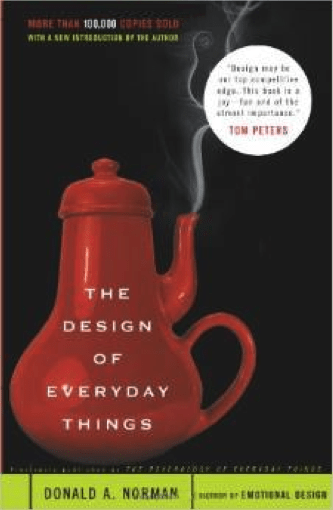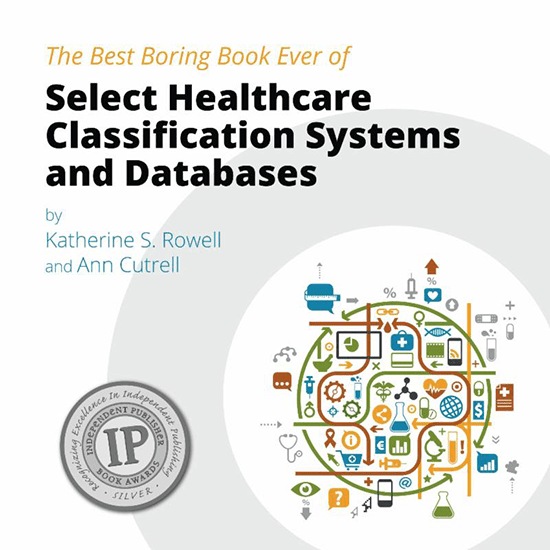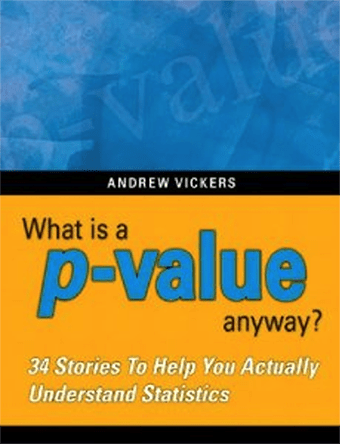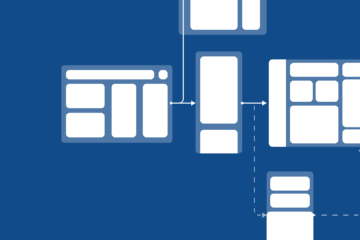It’s that time of year again when I go to the beach carrying whatever book I take with me wrapped in a brown paper cover. I imagine that doing so creates an air of mystery, making people wonder, “Is she reading something really steamy that children and the infirm need protection from?”
Alas, the sad truth is that I am (still!) just a geek who really likes to read non-fiction in my field (you know: statistics, data visualization, design). The brown paper cover is simply my feeble attempt to avoid having sand kicked in my face by the cool kids.
All this to let you down easy — to break it to you that, again this year, you won’t find any racy love stories or intriguing mysteries on my “Summer Reading List for the Healthcare Data Geek”! What you will find are recommendations of terrific references for your work — especially for those hooked as firmly on design, data visualization, and general communication principles as I am — books that offer great ways to increase your knowledge and spark new ideas.
I loved this book so much that I slept with it under my pillow for a few weeks (in part because I would read it late into the night, partly because I wanted it within reach when the “To-Do Committee” woke me, as it inevitably does, at 3:00 AM). I really did. I had not heard of Meirelles, an associate professor of graphic design at Northeastern University, but am now a full-fledged devotee.
Here’s what I like most about this book. First, it’s beautifully designed, with rich and complex examples. I admire the way Meirelles has organized data visualization theories, and supports each one with case studies and easy-to- understand explanations. The book is a real treasure, and if you are serious about learning data visualization, I highly recommend it.
The Design of Everyday Things was first published in 1988 under the title The Psychology of Everyday Things, and is required reading for anyone involved or interested in the design process, regardless of field of specialization. (To my mind, that’s just about everyone.) Norman’s background in cognitive science supports his exploration of the psychology of everyday objects, helping him build a persuasive argument for a user-centered approach to design.
Norman includes descriptions of infuriatingly flawed designs — the best part of this terrific book. If you have ever been baffled by your remote control, car dashboard, or microwave, you know firsthand the frustration these designs elicit, and the way they make you feel like the most technically inept person on the planet. Take heart: Norman rids the reader of those depressing (and misguided) beliefs using case studies of real, everyday objects like the ones I’ve mentioned. His examples make clear how challenging it is to render the complex simple, and how central good design is to comfort, efficiency, and serenity in our daily lives.
While The Design of Everyday Things deals mostly with the creation of physical objects, its principles are equally applicable to the design of websites and other interactive systems.
You won’t be disappointed by this classic — it truly belongs on the “must read” list.
Okay, you didn’t seriously think that I would issue a 2014 Summer Reading List for the Healthcare Data Geek and not include my own book, did you?
As you have probably guessed from the title, this book is not a page-turner; there are no life-changing secrets inside. Rather, it is meant to serve as a resource for both seasoned healthcare professionals and newcomers to the industry.
The Best Boring Book is filled with well-organized, concise but thorough descriptions of selected clinical classification systems and healthcare databases. Each entry on a named system or database begins with a general description of its current state, followed by a timeline of key points in its development. A summary section describes present structure and terminology. This arrangement will, its authors hope, help the reader understand the antecedents and evolution of these systems and databases, and thereby be guided to choose exactly the right such resources for a particular project. Which systems and databases align best with the questions you hope to answer, the information you wish to impart? The information presented here should make those decisions and selections faster, easier, smoother, and more confident.
Yes, I admit it: you’re not going to read this one on the beach…but after a sweet summer vacation, you will most assuredly want it waiting for you back at the office as you prepare to dig in to all the lovely healthcare data that you’ll need to analyze.
I am not one to write fan letters, but I did write Vickers to tell him how much I liked his book, and to thank him for making a snooze of a subject funny, engaging, and educational in one fell swoop. I actually laughed out loud at many of the stories he tells to convey medical statistical concepts.
Vickers takes all of the major introductory topics in medical statistics (descriptive statistics, hypothesis testing, parametric versus non-parametric testing, etc.) and in a very conversational style makes them clear to the average reader. I especially like the fact that this is not a “how to” manual on calculating statistics; rather, it is a great little book for people who need to grasp basic principles of medical statistics, then explain them to colleagues, patients, and others. The author compelling conveys the humanistic quality of numbers, reminding us that they represent actual patients-often friends, family, those we know in workplace and community — who are feeling the multiple effects of illness, injury, and sorrow; and that mortality is not an abstract concept.
The stories in this book are a perfect example of the work we all need to do in order to make highly complex concepts accessible to the public; as evidenced by my fan letter, I highly recommend it.
I’ve talked here about just a few of the titles I think you’ll find worth toting to the beach or lakeside this summer-with or without discreet paper wrappers. As for me? Well, I haven’t quite decided what I’ll be taking on vacation, but I’m guessing my selections will cement my status as a full-fledged healthcare-data geek.
After all, I wouldn’t want to ruin my hard-earned reputation…







0 Comments